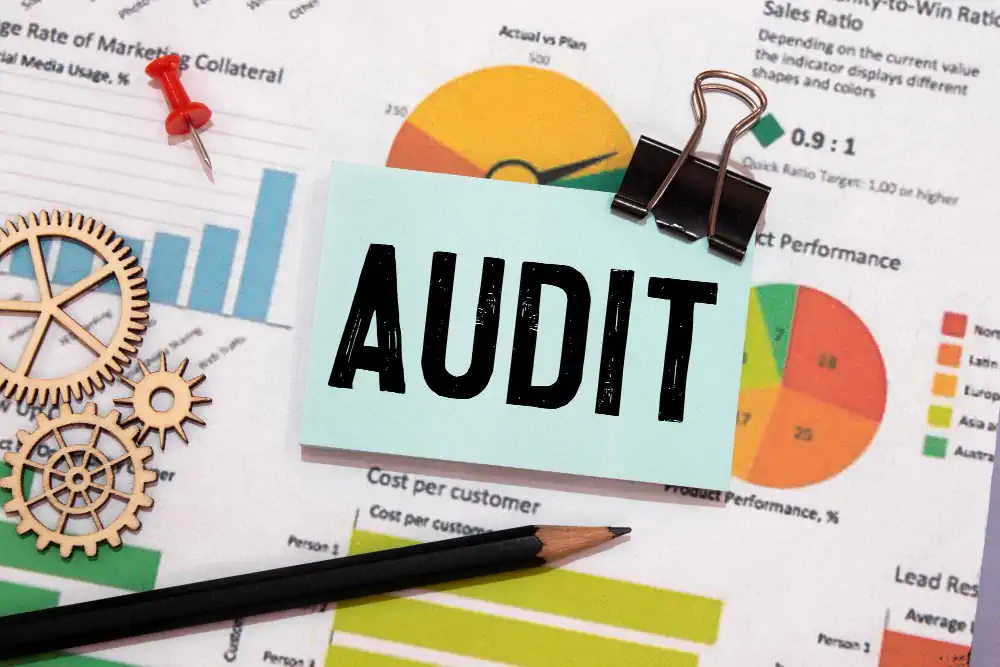Legal Due Diligence: A Must for Successful Foreign Direct Investment in Thailand

Thailand’s strategic location in Southeast Asia and its economy that is continually rising have made it a more and more appealing place for Foreign Direct Investment (FDI). But to get around the Thai legal and regulatory system, which is a complicated mix of civil law traditions and local customs, you need to plan carefully and follow through with your plans. Not properly understanding and dealing with these difficulties can put investors at risk of unexpected debts, expensive lawsuits and big financial losses. This is when thorough legal due diligence becomes not just a good idea, but vitally necessary.
Understanding the ins and outs of the Thai legal market makes it easier to deal with the problems that come with FDI. This article talks about how crucial it is for FDI in Thailand to do legal due diligence. It talks about what it is, what it covers, what it looks into and how it aids investors who wish to do well in the country.
I. The Important Part That Legal Due Diligence Plays in FDI in Thailand
FDI in Thailand is putting money directly into a Thai business, either by buying it or by expanding its current operations. These investments are subject to a complicated set of laws that can be very different from those in an investor’s home country or even from those in other ASEAN member countries. You need to completely understand these details in order to be successful in any FDI business. Legal due diligence gives investors the important information they need to find, evaluate and reduce the risks that come with making cross-border investments in Thailand.
It can’t be said enough how important legal due diligence is in Thailand:
Following the Foreign Business Act (FBA): The FBA controls how foreigners can do business in Thailand and limits how much they can own in some areas. Legal due diligence is very important to make sure that the FBA is followed, to find any possible limits and to get the licenses that are needed.
Dealing with Restrictions on Land Ownership: In Thailand, foreigners are not allowed to own land directly. Legal due diligence makes it obvious what kinds of property ownership structures, leasehold arrangements and other ways to get land rights are allowed.
Reducing Risk in the Thai Business Environment: FDI deals in Thailand come with special risks because of the country’s laws, rules, finances and operations. Legal due diligence makes it easier to find and evaluate these risks, which helps create effective ways to lower them. These strategies could include negotiating certain protections in the contract, getting the right insurance or changing the deal so that there is less risk.
Making an informed decision: A complete legal due diligence examination gives investors a full picture of the target company’s legal status, assets, debts and any legal problems. This gives investors the information they need to decide whether to go through with the investment and, if so, on what terms.
Correct Valuation: The legal risks and obligations of a target company have a direct effect on its value. Legal due diligence helps investors figure out how much a target is worth by finding any potential liabilities that could hurt its financial performance. This makes sure they pay a fair price and don’t spend too much.
Increased Negotiation Power: The results of legal due diligence provide investors a lot of power when they talk to the target company. Investors might ask for the right statements, warranties, indemnification clauses or changes to the acquisition price if they know about possible legal problems.
Compliance Assurance: FDI deals must follow a lot of rules and legislation in both the investor’s home country and Thailand. Legal due diligence makes ensuring that all necessary standards are met, which lowers the chance of facing fines and lawsuits.
II. Goals of Legal Due Diligence in Thailand
In Thailand, the main goals of legal due diligence in FDI deals are to:
- Check the Information: Make sure that the target company’s financial accounts, assets, contracts, license, and permits are all correct and comprehensive.
- Find Legal Risks: Find any legal risks or liabilities that could hurt the target company’s value or operations.
- Check for Regulatory Compliance: Check to see if the target company is following all Thai laws and rules that apply to it, such as those about the environment, workers and corruption.
- Check the target company’s material contracts to find any possible violations, termination rights and other risks that come with contracts.
- Check Ownership and Control: Make sure the investor will have the level of control they want after the investment by checking the ownership structure of the chosen company.
- Check the Target Company’s Intellectual Property (IP): Under Thai law, check the strength and legality of the target company’s IP rights, such as patents, trademarks and copyrights.
- Check the Target’s Risks of Litigation Proceedings: Find out about any lawsuits, arbitration or other issues that the target company is involved in or is about to be involved in.
- Look at the Regulatory Environment: Learn about Thailand’s regulatory environment and any possible regulatory issues that could affect the investment.
III. What legal due diligence means in Thailand
The exact amount of legal due diligence that needs to be done will depend on the type of investment, the industry the target firm is in and the investor’s own concerns. But a typical legal due diligence inquiry in Thailand looks into these main areas:
Structure and management of the company:
- Under Thai Company Law, you should look over the target company’s articles of association, memorandum of association, permitted signatory powers and other organizational papers.
- Checking with the Thai Department of Business Development (DBD) to make sure the firm is legally registered and in good standing.
- A look of how the company’s board, committees and internal controls work compared to Thai norms.
- Checking relevant operation license(s) of the target’s business to see if it is still valid and if it has any additional limitations.
- Finding any transactions between connected parties or conflicts of interest that could be against Thai law.
Contracts:
- Checking all important documents, such as leases, customer contracts, supplier contracts, financing agreements, shareholders agreements and joint venture agreements, to make sure the investor knows what rights and responsibilities they will have.
- Looking at important parts of the contract, like how to pay, when to end the contract, who is responsible for damages and how to settle disagreements.
- Finding any possible violations or defaults in the contracts, taking into account how Thai law sees things.
Liabilities and Assets:
- Checking that the target company owns its assets, such as real estate, machinery and IP.
- Finding out if there are any liens, encumbrances or other claims on the assets that are registered in Thailand.
- Review of the target company’s debts, accounts payable and contingent liabilities, as defined by Thai accounting rules and law.
Intellectual Property (IP):
- Check out the target company’s patents, trademarks, copyrights and trade secrets that are registered or protected in Thailand.
- Checking to see if the IP rights are legal and can be enforced under Thai IP legislation.
- Finding any possible accusations of infringement or challenges to IP rights.
Disputes and lawsuits:
- Look into all of the target company’s pending or threatening lawsuits, arbitration cases and other legal problems in Thailand.
- Based on Thai legal precedents, an assessment of the possible responsibility that could come from the disputes.
- Review of the target company’s history of lawsuits and how it handles risk.
Following the rules:
- Check to see if the target company follows all Thai laws and rules that apply to it, such as those about the environment, workers’ rights, health and safety, personal data protection and fighting corruption.
- Checking the target company’s Thai-issued permissions, licenses and approvals, including checking to see if the target is breaking any of the restrictions of those permits.
- Finding any possible infractions of the law or steps that need to be taken.
Things that have to do with the environment:
- Check to see if the target entity follows Thai environmental regulations.
- Finding any environmental problems, like areas that are polluted or problems with getting rid of hazardous trash.
Labor and Employment Issues:
- According to Thai labor law, you should look over the target company’s employment contracts, work regulations and employee handbooks.
- Checking to see if the target company follows labor regulations, such as those about paying wages, disciplining workers and making sure the workplace is safe.
- Finding any possible labor disputes.
Tax Issues:
- Check the target company’s tax records and filings with the Thai Revenue Department (RD).
- Evaluating the target company’s tax obligations and any tax risks according to Thai tax law.
- An evaluation of the target company’s transfer pricing rules and procedures.
Real Estate:
- It is very important to understand how complicated it is for foreigners to acquire land while reviewing the target company’s real estate holdings, such as title documents (land title deeds), leases and mortgages.
- Determining the value and limits on use.
- Finding out whether there are any zoning limitations or environmental problems that influence the property.
IV. Specific Areas of Focus
The due diligence approach in Thailand is recommended to pay special attention to the following important areas:
Compliance with the Foreign Business Act (FBA): A thorough review to make sure that all FBA rules are followed, including checking what activities are allowed, who can own a business and what licenses are needed.
Land Ownership Problems: A detailed look at how land ownership works, lease agreements and other ways for foreign investors to get land rights.
Compliance with Thai Labor Regulations: This means a full review of employment contracts, working conditions, wage practices and all other laws that apply.
IP Protection: Checking who owns IP rights, whether they are valid, and whether they may be enforced. The process includes trademark and patent ownership and licensing searches in Thai databases at the Department of Intellectual Property (DIP).
Environmental Regulations: Checking to see if Thai companies are following the rules of waste management, pollution control and environmental impact assessments, and finding any possible environmental liabilities.
Anti-Corruption Compliance: Checking that internal rules and processes follow Thai anti-corruption legislation, which includes looking at how gifts, entertainment and charitable donations are handled.
Privileges or Relaxation: Verification of compliance with all conditions and requirements for companies that have been granted incentives or relaxation by, for example, the Thai Board of Investment (BOI), the Industrial Estate Authority of Thailand (IEAT) or the Eastern Economic Corridor (EEC), or related treaty, if any, with assessment of the potential impact of non-compliance.
V. Conclusion
Legal due diligence is not merely a procedural step, but a fundamental prerequisite for successful FDI in Thailand. By providing a comprehensive assessment of the legal risks and opportunities associated with a potential investment, it empowers investors to make informed decisions, negotiate favorable terms and mitigate potential liabilities. Legal Concept is uniquely positioned to guide investors through the complexities of the Thai legal and regulatory, ensuring a successful and sustainable investment.

